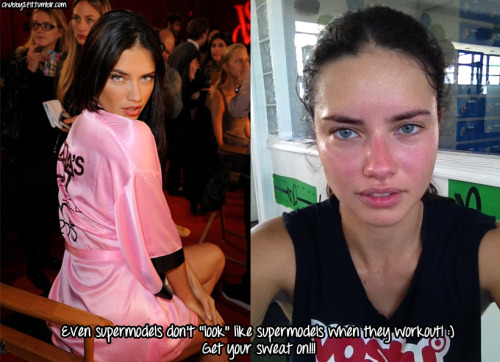Fitness magazines are overflowing with lists of
little things you can do that will improve your health and fitness. Those lists are great. No particular item takes that much time or energy or planning on your part. You can mix and match the items that are easiest to do and you start to reap the rewards. The rewards aren't huge, but they're meaningful.
But, let's step back and look at the big changes you can make that will bring you big results. The downside is this: these could be meaningful changes to your lifestyle. They could mean meaningful changes to your approach to the gym or to your day-to-day schedule. The good news is that, on the surface, the changes are surprisingly simple. The real complexity comes when it is time to actually make these changes into your lifestyle. That isn't something you can be guided through in a magazine. You have to figure that stuff out on your own anyway. Don't get me wrong, fitness professionals like myself are here to help. But, you have some heavy lifting to do -- figuratively and literally.
Change #1: Strength training
There are a lot of people out there doing "strength training" and then there are people who are actually strengthening. The goal here is to lift enough weight that the weight is a challenge. You are looking to get stronger than before and add muscle to your body. If you are a woman who is worried about "being too bulky", I'd encourage you to give it a try and see what happens. Worst case, you ease off for a while and lean up. But,
as I've said before, the "bulky" concern shouldn't be a concern at all. In fact, I'd put the idea that women should not lift right up there with the idea that women belong in the kitchen. It was wrong from the beginning.
To drive the point home, I'm not talking about the 15-repetition you-do-the-same-routine-every-week thing that you see everyone doing in the gym. This is the 10-repetition I-may-not-finish-the-set version. The difference between 15 repetition and 10-repetition may not sound like much, but the feel of the workout is very different - and very unfamiliar to many. That's not to say that you have to lift mountains of weight like the models in fitness magazines, but you do have to lift weights that you don't realize you are capable of today. And sometimes, you fail to finish a set. And
that's just fine. You have to take some time to get accustomed to this kind of workout, but it really pays off. And don't waste your time with isolation exercises -- although I've
said that before.
Change #2: Interval training.
The thinking about cardiovascular training has slowly been changing over the last 10 years or so. In the past, we told people to aim for an intensity level that you could maintain over time and then stay there for an extended period of time. "Slow and steady wins the race" was the thinking. The problem is this thinking has been proven wrong. The best knowledge now says that the more effective form of cardiovascular exercise is interval training. To take that analogy, the tortoise might just win that race, but the hare looses weight and is healthier. The basic idea is to push well beyond an intensity level that you could maintain over time for shorter bursts with recovery times in-between to catch your breath.
High
Intensity
Interval
Training, or HIIT, can be pretty serious stuff. The most elite athletes out there push themselves to an extremely high level to be able to perform. Instead, you should do a version of interval training that is right for you. You are pushing well beyond the point that you could maintain over time. I wrote a post a while back giving you a
basic introduction to intervals. Just like the heavier weight training, interval training takes some time to get used to but the pay-off is well worth it.
Change #3: Eat the ChooseMyPlate diet.
Take a look at your meals and aim to make them look like this plate:
This is the system that replaced the food pyramid last year. I've liked it from the beginning --
here's why. Okay, maybe you don't organize the food on your plate like this, but you're aiming for those proportions. Half of your plate is fruits and veggies while the other half is split between grains and protein. On the surface, it sounds easy. But I've got some news. It isn't. We tend to prefer a carbohydrate-rich diet and skimp on veggies and the lean protein. (As a side note, that's why diets that restrict carbohydrates have been successful at times. It's not that carbs are bad, it's the fact that many of us just eat too much.)
The piece that's implied here is that you shouldn't be eating all of the high-sodium processed foods that dominate our culture. This is another change that is very easy to describe but very difficult to follow. This is the lifestyle change that you hear so much about. The change is tough, but well worth it.
Big Changes
There are your three big changes that will get big results: challenging weight training, interval training, and the ChooseMyPlate diet. And..... You're starting all three of these tomorrow, right? ;-)







